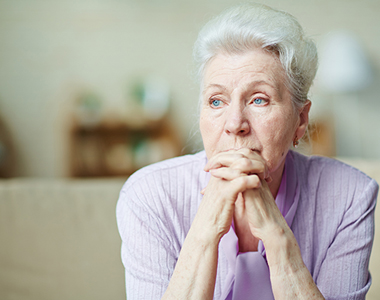
As you age, your body changes. Joints become stiffer. You begin to lose muscle and gain fat. You don’t feel as strong or as nimble. Even the shape of your body changes, affecting your balance. As these physical changes happen, you may be tempted to stay at home more and keep to yourself.
Each of these changes is a sign of getting older. You may resign yourself to thinking that it’s just the natural progression of life. You should know, though, that there are ways to slow down this aging process.
Your lifestyle choices will determine how quickly or slowly these changes take place as you age. In addition, making healthy choices can lower your risk for diseases like heart disease, stroke, type 2 diabetes, and some types of cancer.
Diet and exercise are also linked to mental health benefits. Research states that physical exercise improves cognitive function in older adults. Cognitive function is how well your brain works to understand thoughts and experiences.
Staying social and spending time with friends is another important lifestyle choice that can positively impact your health and well being. One scientific study showed that older adults who were even moderately social had slower physical and mental decline. Also, these more active seniors needed to visit their doctors less often.
Path to improved health
Making smart lifestyle choices is the best way to slow down the aging process. Some guidelines for good choices are offered by National Institutes of Health. They include:
- Get regular exercise.
- Eat a healthy diet that includes fruits and vegetables, whole grains, and the right amounts of healthy fats.
- Limit your alcohol use.
- Avoid tobacco products and illicit drugs.
Benefits of Physical Activity
Physical activity has many benefits, including the following:
- Helps the body burn calories instead of storing them as body fat.
- Helps keep blood sugar levels more balanced and in a normal range (lowering your risk for diabetes).
- Lowers blood pressure and cholesterol levels.
- Helps keep bones and muscles strong.
- Builds strength and endurance.
- Decreases stress and improves sleep and mental well being.
- Prevents serious health problems that can come with being overweight or obese.
How much physical activity do I need?
Always talk to your doctor before beginning an exercise program. If you are 65 years of age or older, are generally fit, and have no limiting health conditions, you can follow these guidelines offered by the Centers for Disease Control and Prevention (CDC).
Older adults need at least:
- 5 hours of moderate-intensity aerobic activity (such as brisk walking) every week.
AND
- Muscle-strengthening activities on 2 or more days a week that work all muscle groups (legs, hips, back, abdomen, chest, shoulders, and arms).
OR
- 25 hours of vigorous-intensity aerobic activity (such as jogging or running) every week.
AND
- Muscle-strengthening activities on 2 or more days a week that work all muscle groups (legs, hips, back, abdomen, chest, shoulders, and arms).
Increasing your aerobic activity, as you can, will lead to even greater health benefits. The CDC recommends as much as 5 hours of aerobic activity a week.
What else can I do to stay active?
Find a physical activity that you enjoy. Try to combine social activities with physical activities. For example, plan to go for a walk with friends. Take a dance class with your spouse. Do volunteer work. The important thing is to keep moving. Every little bit helps and keeps you connected with others, as well.
Be a social butterfly
In addition to making healthy choices about diet and exercise, it is important to maintain a social schedule. Interacting with friends and family will keep you engaged. Keeping your brain engaged comes with many benefits. An engaged brain is the key to a sharper mind. Staying aware and keeping your brain engaged may help reduce your risk for developing Alzheimer’s disease.
Being social also helps you feel connected. Older people who are socially connected are less likely to become depressed.
If you are looking for ways to expand your list of friends, consider taking a class or volunteering. Both are great ways to connect with people who have similar interests.
Things to consider
If you have a physical condition that does not allow vigorous exercise, do what you can. You may be able to lift weights and do strength training. Or you may be able to walk, even if you can’t walk quickly. Decide with your doctor the best ways for you to stay active.
Questions for your doctor
- Is there any reason I can’t begin an exercise program?
- I am not used to exercise. How should I begin?
- Can I exercise even if I have high blood pressure?
- I am so sore after I exercise. Is this normal?
- Sometimes I feel dizzy when I exercise. Should I be concerned?











